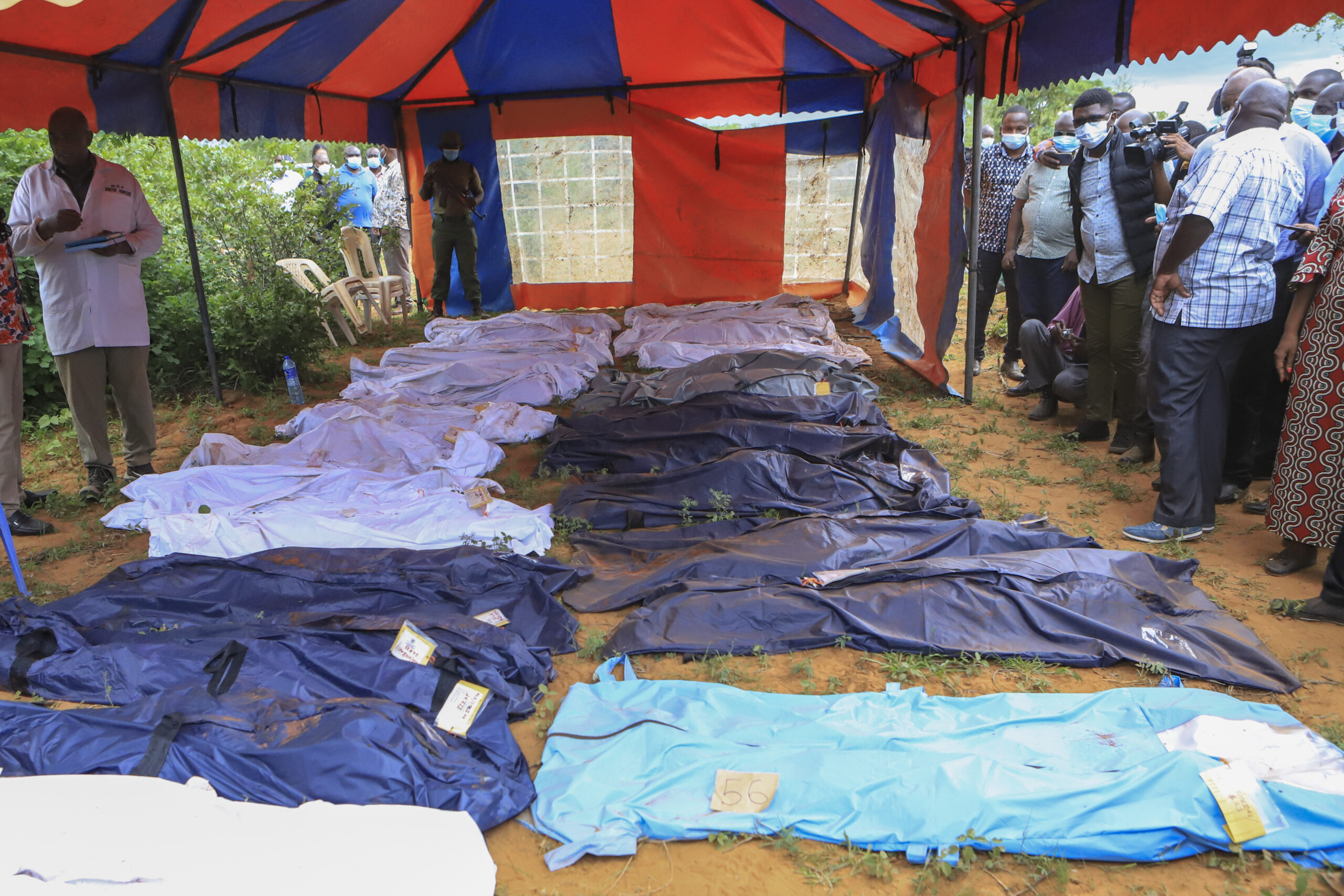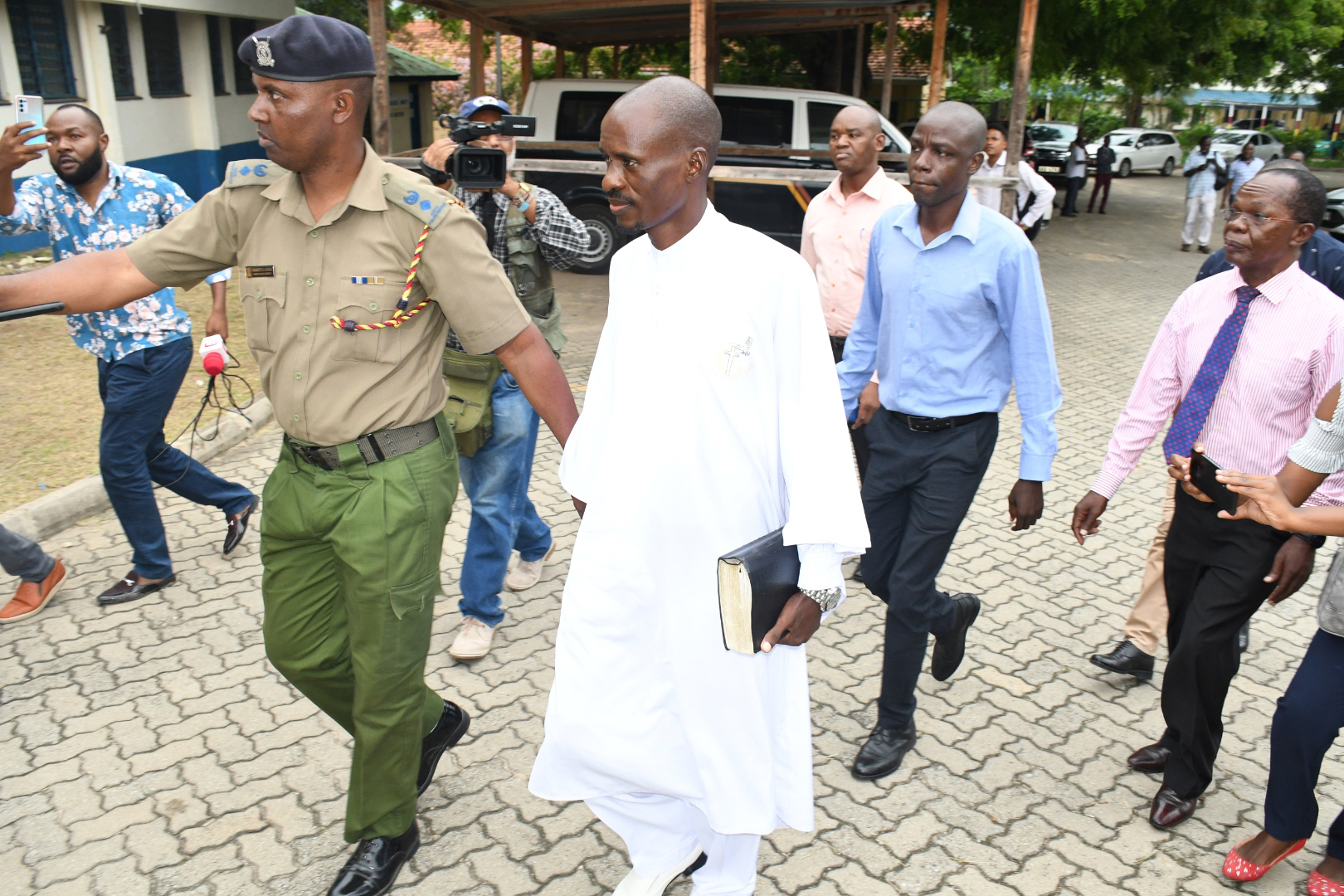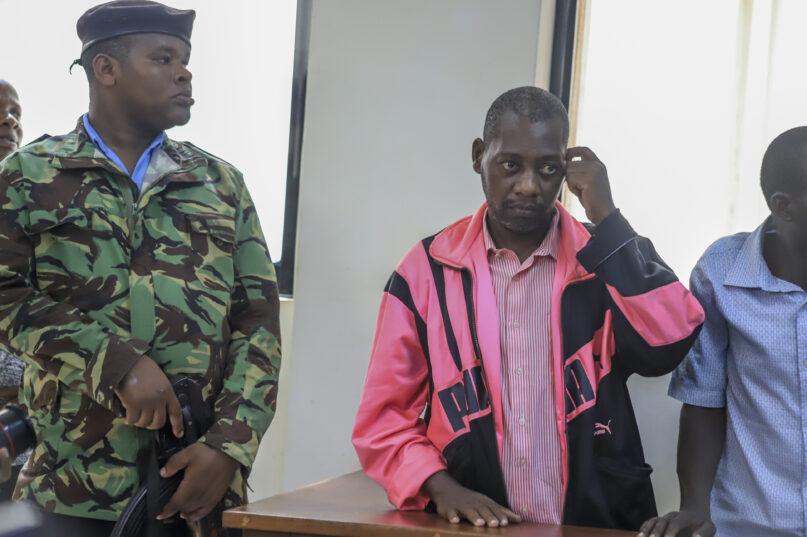NAIROBI, Kenya (RNS) — Months after a Kenyan pastor forced his followers to starve to death to meet Jesus, the government has banned his church and four others to protect citizens from religious extremism.
The Registrar of Societies announced on Friday (Aug. 18) that it had deregistered Paul Nthenge Mackenzie’s Good News International Ministries, founded with an End Times message in 2003 and known to Kenyans as the Shakahola cult.
Earlier this year, authorities learned that Mackenzie, the self-appointed leader of the group, had been asking his followers to fast to death in order to expedite their entry to heaven. When many obeyed and starved themselves, their bodies were quickly buried in shallow graves in the expansive Shakahola forest in the coastal county of Kilifi.
By August the total number of deaths in what is being called the Shakahola starvation massacre had reached 427.
On the day his church was deregistered, Mackenzie was in prison in Mombasa, where he has been held since surrendering to authorities in April. On Aug. 8, the court allowed the police to detain him for another 47 days to allow the completion of their investigation.

FILE – Body bags are laid out at the scene where bodies have been found in shallow graves in the village of Shakahola, near the coastal city of Malindi, in Southern Kenya on April 24, 2023. The number of people who died in connection with Kenya’s doomsday cult crossed the 400 mark as detectives exhumed 12 more bodies on July 18, 2023, believed to be followers of a pastor who ordered them to fast to death in order to meet Jesus. (AP Photo)
The pastor faces charges of cruelty toward children, kidnapping and murder, in addition to terrorism. Most of his victims died of starvation, but others were said to be suffocated, strangled or beaten to death.
The registrar also outlawed the New Life Prayer Centre, a fast-growing church in Kilifi owned by Pastor Ezekiel Odero, a young and flamboyant preacher police are investigating on suspicion of money laundering, aiding suicide and radicalization; the Helicopter Church of Christ in Nairobi, run by Thomas Wahome; and Kings Outreach Church, affiliated with the Repentance and Holiness Ministry of renowned tele-evangelist Prophet David Owuor.
Theophilus Church in Nairobi was also shut on suspicion that it was involved in cultic activities.
Wahome’s church is accused of an illegal land grab near the Nairobi Dam. Owuor has said he had requested his church be deregistered late last year and that the deregistration had nothing to do with the Shakahola incidents.
“Some of these groups lack the features that make a church. We have just seen them emerging. We don’t know which theological schools their leaders attended. We only see their leaders emerging and seeking to be glorified,” said the Rev. Joachim Omollo Ouko, a Catholic priest in the Kisumu archdiocese in Western Kenya. “These leaders should be questioned and checked.”
Kenya, a mostly Christian country of about 53 million people, has about 4,000 registered churches. But the country has faced uncontrolled proliferations of churches, sects and religious movements in recent years, and while the government has attempted to control the groups, its efforts have been resisted on the grounds that it was trampling on the people’s freedom of worship and religion.

Pastor Ezekiel Odero, center, holds a bible as he is led by police in Mombasa, Kenya, Thursday, April 27, 2023. (AP Photo/Maarufu Mohamed)
As a result, Bishop Lembert Mbela, a Redeemed Gospel Church leader in Mombasa, told Religion News Service, “There are many propagating this kind of ‘dangerous’ doctrines in the country. I think it’s a question of who are you accountable to.”
Soon after the Shakahola deaths, renewed calls came for the closer regulation of faith, but religious leaders have again resisted the move, saying the Shakahola massacre was an isolated crime.
“We find the narrative being driven that churches and by extension religion need to be regulated is a façade meant to divert on the real problem — that the state has failed to play its role in dealing with a crime,” said Catholic Bishop Martin Kivuva Musonde in a statement in April after a meeting of the country’s religious leaders.
In May, President William Ruto announced a task force to review Kenya’s legal and regulatory governance of religious organizations to identify gaps in the law that allow the growth of extremist groups in the country.
“We recognize that this task force was established on the backdrop of the saddening deaths of hundreds of Kenyans at Shakahola,” Canon Chris Kinyanjui, the general secretary of the National Council of Churches of Kenya and a member of the task force, said on Aug. 8. But he charged Kenya’s security agencies with failing to “act on reports that were made to them” and called on the task force to “make recommendations that promote rather than curtail the exercise of the freedom of religion on account of failure by state agencies.”





